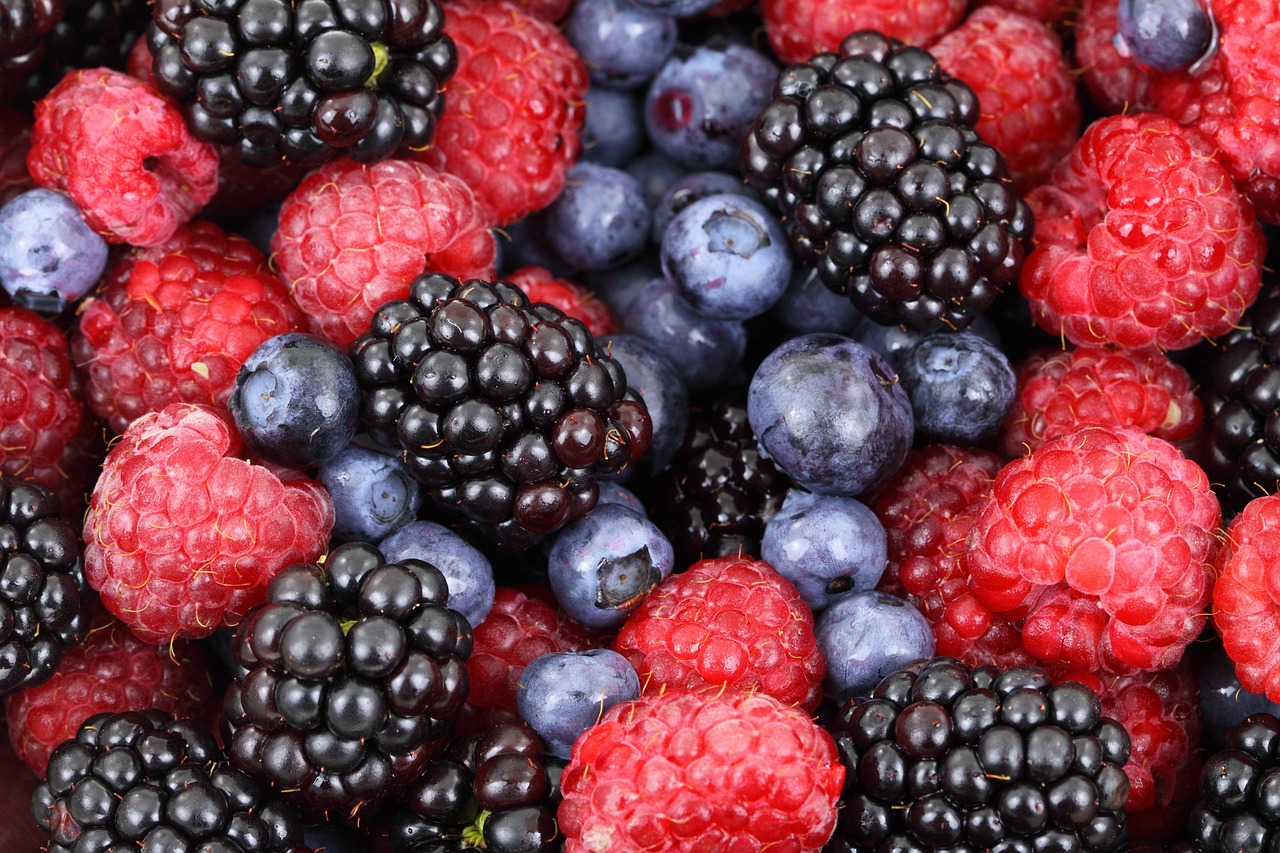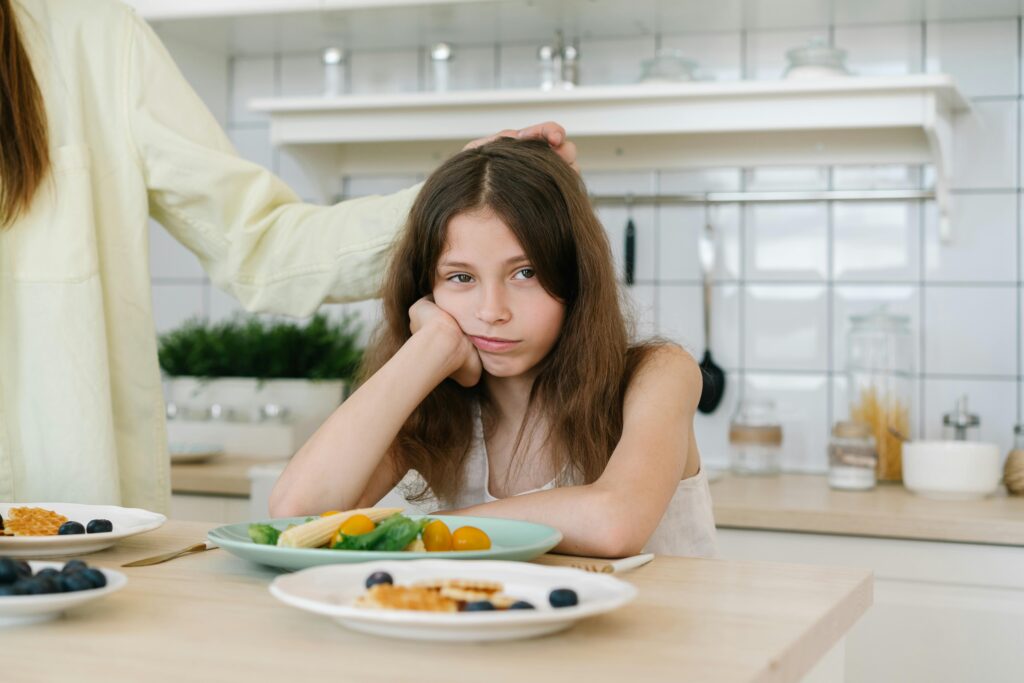
It was about honoring the gift of food
Did you know that the average family wastes about $1,500 worth of food each year? According to Feeding America, an organization dedicated to reducing food waste, 92 billion pounds of food go to waste each year — that’s 145 billion meals!
As parents, we all know the drill. You carefully prepare a meal, serve it with love, and watch as your child takes exactly three bites before declaring they’re full or suddenly “don’t like it anymore.” Now you’re left with a decision: throw it away and feel guilty about food waste, or eat it yourself and risk consuming way more than you intended. If you’ve ever found yourself finishing half a PB&J while standing over the sink, you’re not alone.
While we want to reduce food waste, we also don’t want to sacrifice our health. Growing up as a first-generation Chinese American, I learned to deeply respect food. My parents, especially my mom, taught me that food should never be wasted, regardless of whether we lived in “The Land of Plenty”. It wasn’t just about avoiding waste; it was about honoring the gift of food. My mom made sure every leftover was eaten, even if it meant several meals. Fried rice and dumplings were our favorite ways to reuse leftovers, ensuring both variety and zero waste. This early lesson in creativity with food shaped how I approach sustainability in the kitchen today.
The good news? With a little creativity and mindfulness, we can reduce food waste, maintain a healthy diet, and teach our kids the importance of sustainable eating habits.
1. Serve Smaller Portions to Reduce Food Waste
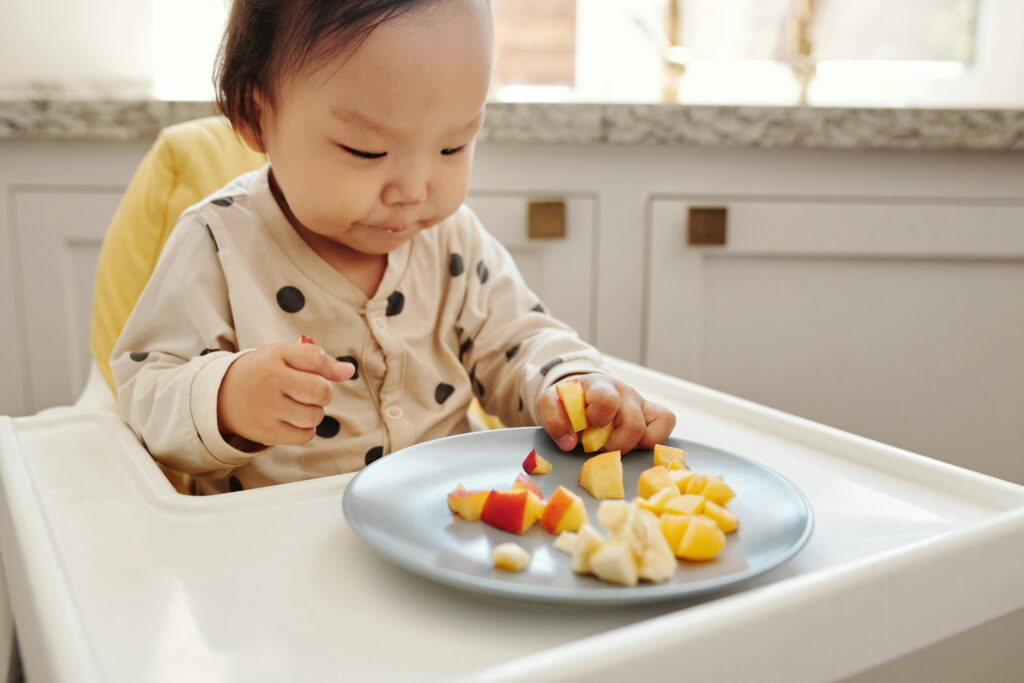
Kids can be unpredictable eaters, so instead of loading their plates, start with smaller portions. You can always give them more if they’re truly hungry, reducing the amount of uneaten food in the first place.
2. Store Leftovers for Later Meals
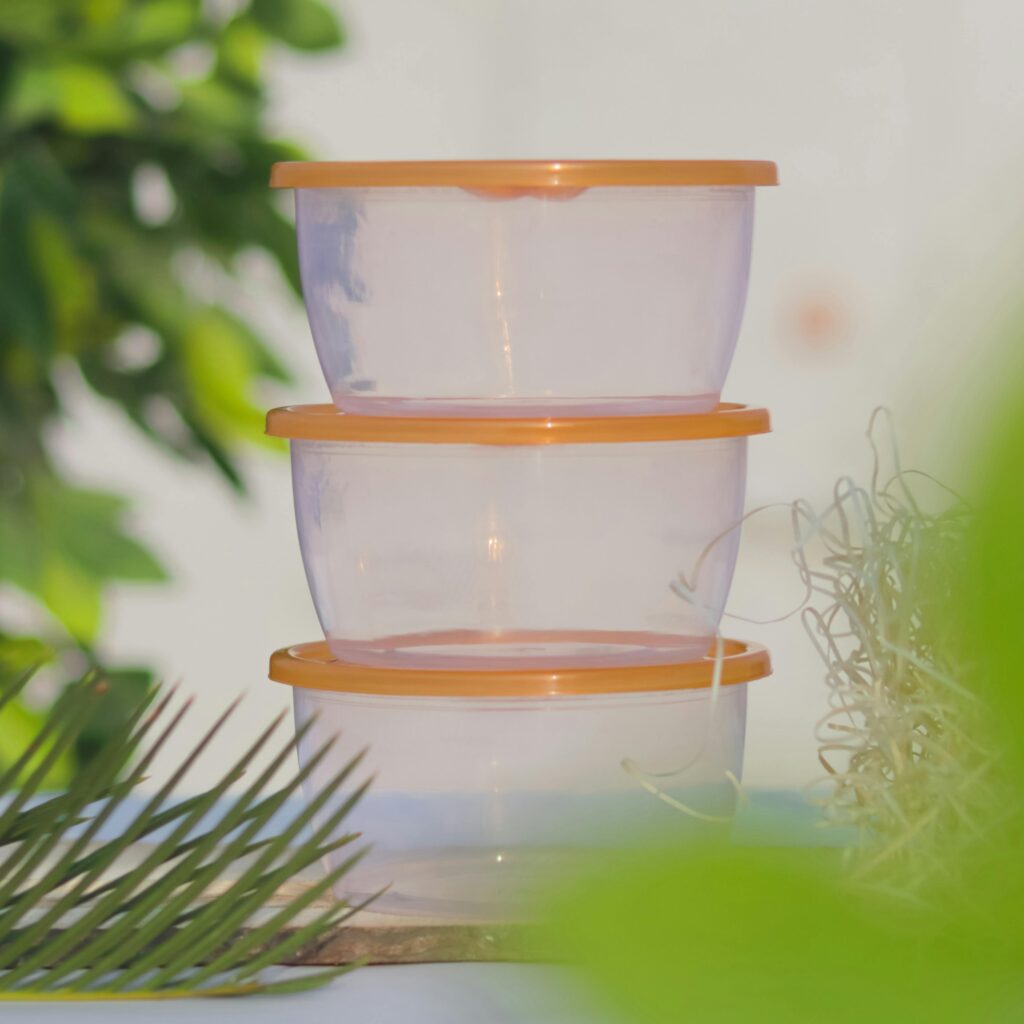
If the food is still fresh and hasn’t been contaminated (read: no yogurt-covered fingers mashing it up), store it for another snack or meal. A few uneaten carrot sticks or half a banana can easily become part of a smoothie or a side for the next meal.
3. Repurpose Leftovers into New Dishes

Some foods are easily transformed. That uneaten scrambled egg? Toss it into tomorrow’s breakfast burrito. Those extra veggies? Add them to a soup or pasta sauce. This way, you’re still avoiding waste, but in a more intentional way.
4. Have a Healthy Snack Alternative for Yourself
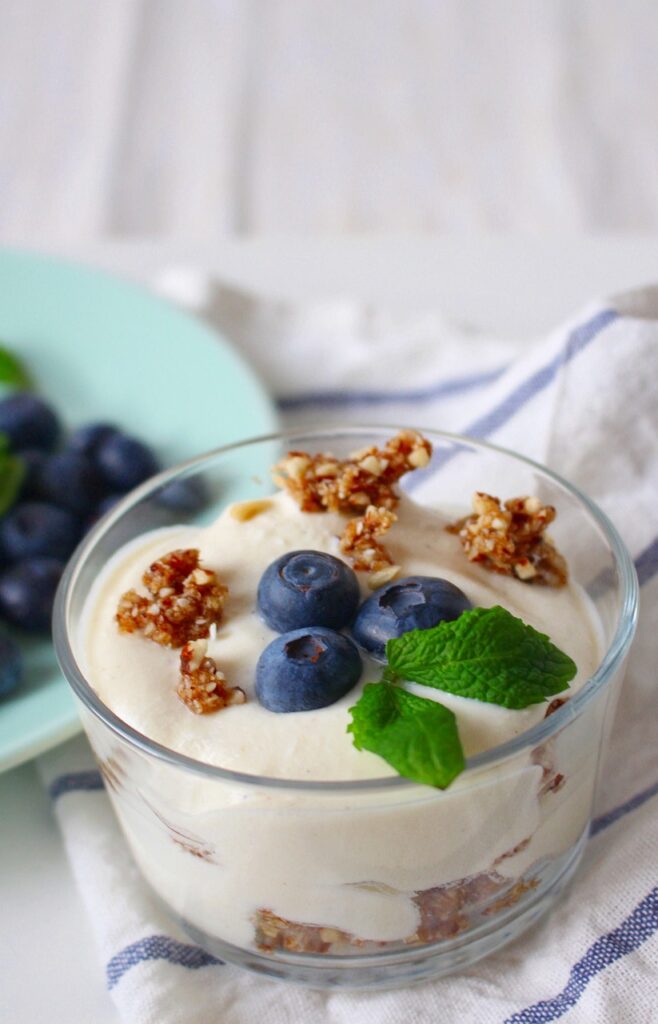
If you’re tempted to eat their leftovers because you’re hungry, have a designated snack for yourself. A handful of nuts, some fruit, or a yogurt cup can satisfy your cravings without making you feel like you’re mindlessly eating your child’s discarded meal.
5. Encourage Kids to Take Small Portions First

Don’t do it like this kid! To reduce waste, encourage your child to take just a small amount of something new to see if they like it before putting a full serving on their plate. This helps them learn to make better food choices and prevents excess food from going uneaten.
6. Be Mindful of Your Eating Habits

It’s easy to fall into the trap of finishing off your kid’s leftovers simply because it’s there (I’m guilty of it!). Before taking a bite, ask yourself: “Am I actually hungry?” If not, it’s okay to let it go.
7. Compost Food Scraps for a Sustainable Solution
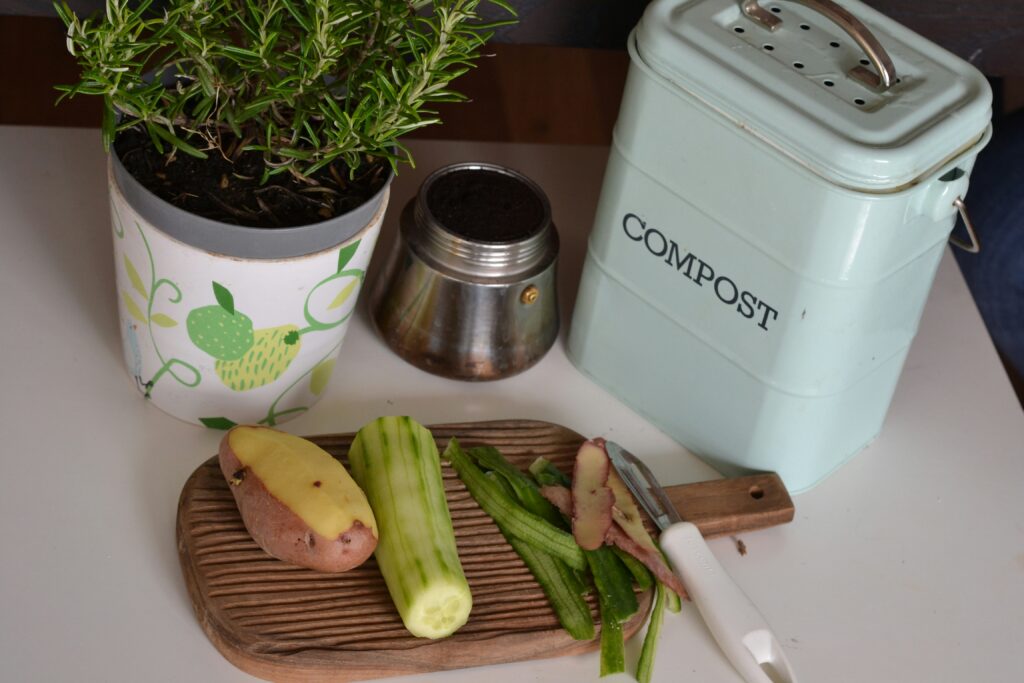
For foods that can’t be saved or repurposed, composting is a great way to minimize guilt. This way, even if the food isn’t being eaten, it’s still being put to good use and contributing to a healthier planet.
8. Lead by Example with Healthy Eating Habits
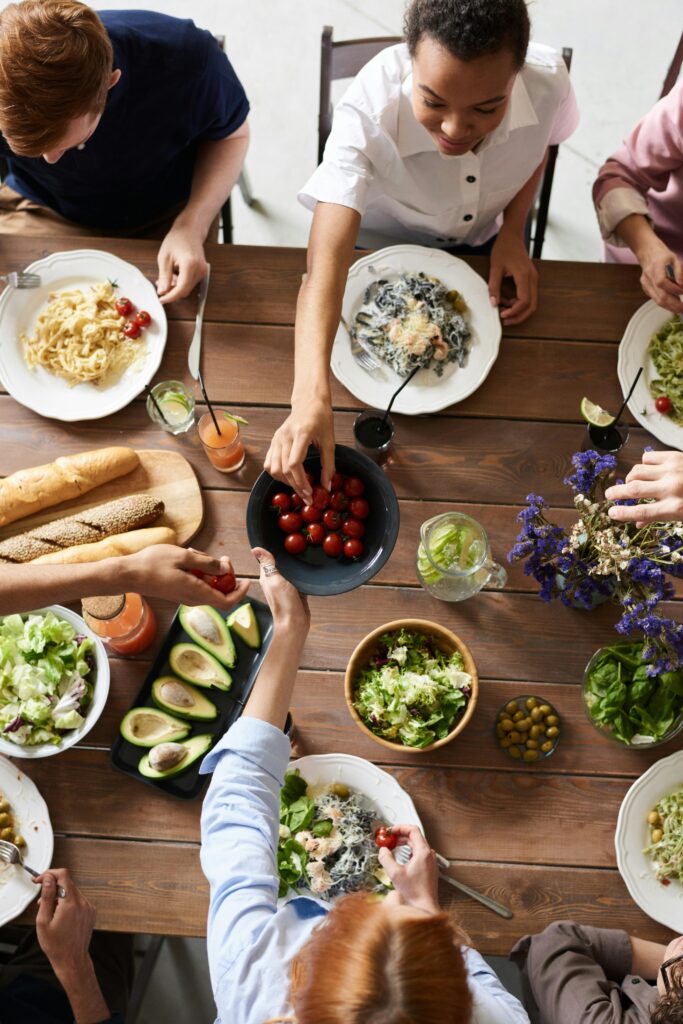
Kids learn by watching us. If they see us eating intentionally and respecting our own hunger cues, they’re more likely to develop a healthy relationship with food as well.
Give Yourself Grace: It’s Just a Season

Let’s be honest—sometimes, despite our best efforts, we do eat our kids’ leftovers. And yes, sometimes that means putting on a few extra pounds. I’ll admit, I have some weight I’d rather not be carrying, and there are moments when I pop a leftover bite into my mouth just to avoid throwing it away—even when I’m not hungry. But here’s what I remind myself: this is just a season.
Our bodies are the vehicles that carry us through life, and they will adjust as we need them to. The way we eat and care for ourselves now won’t be the same forever. Eventually, I’ll be back in better shape. But in the meantime, I’m learning to love who I am and where I am—right alongside you. Some days, that’s easier said than done, but we’re in this together. And that’s what really matters.
Final Thoughts
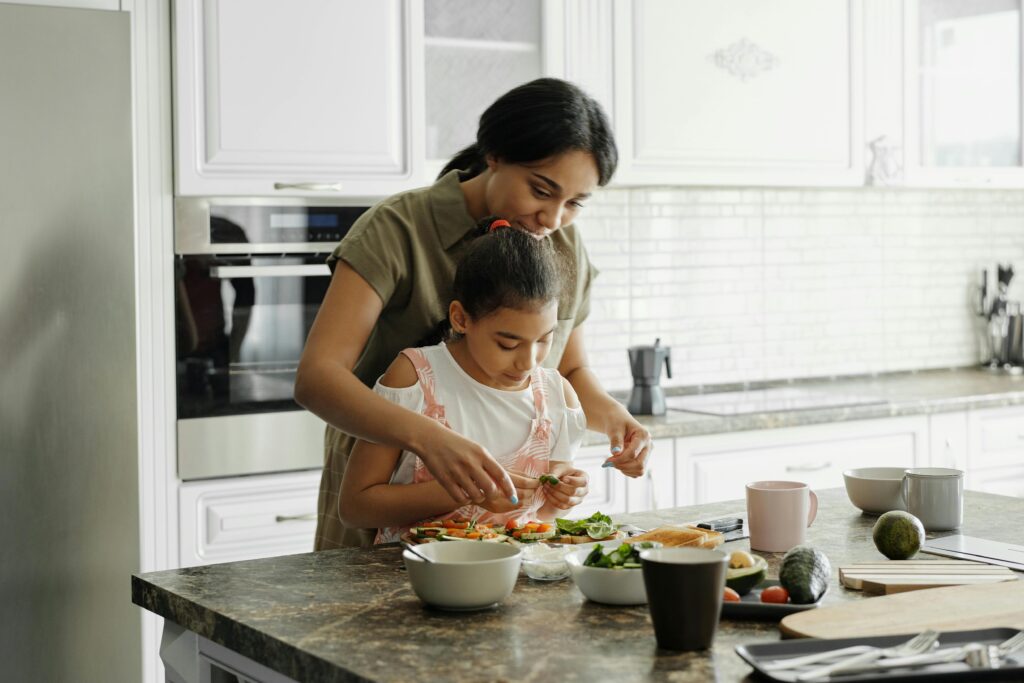
As moms, we juggle a lot—including the constant battle between food waste and weight gain. But with a little planning and mindfulness, we can navigate this challenge in a way that respects both our health and our desire to reduce waste. Small changes add up, and by setting a positive example, we’re teaching our kids the value of mindful eating and sustainability.
By making small, intentional choices, we can reduce food waste, maintain a healthy weight, and show our children that every bite matters. So next time you’re eyeing that leftover mac and cheese, take a deep breath, assess your hunger, and remember—you have the power to make choices that serve both you and your family well! And if you happen to pop that leftover mac and cheese in your mouth, that’s ok too because this is just a season. Enjoy that bite, because there most likely won’t be much left overs once they’re teenagers!
What are your favorite ways to reduce food waste? Share your tips in the comments below! If you found this helpful, don’t forget to share it with a fellow mom who might relate!

